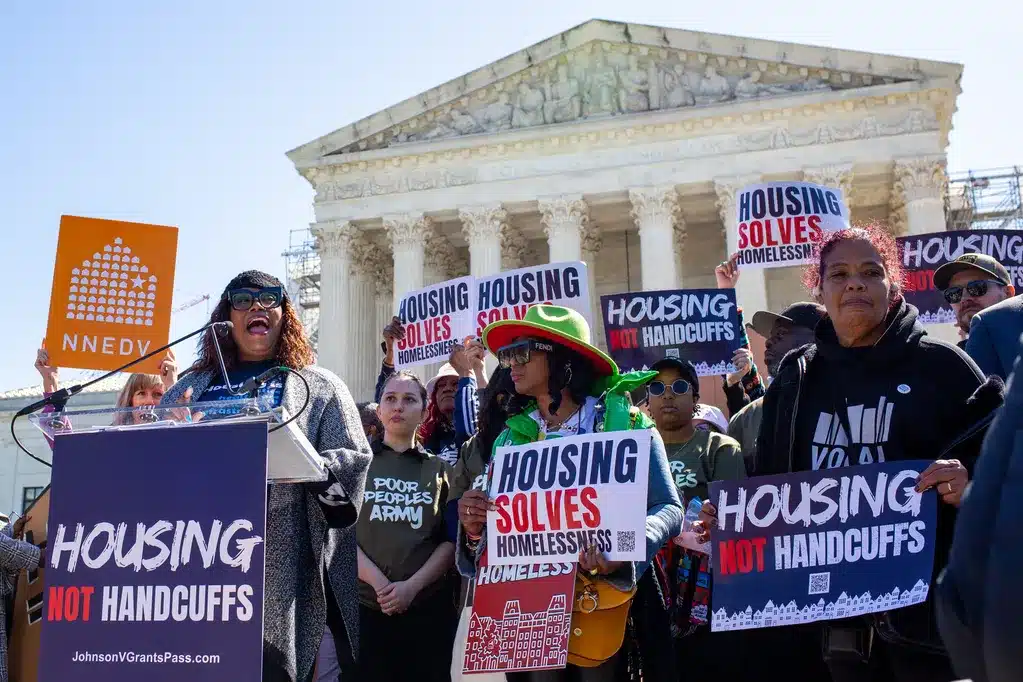Homelessness has been increasing exponentially in Oregon since the COVID-19 pandemic and subsequent cost-of-living crises. There are not enough accommodations for the large homeless population, and as a result unsheltered homelessness is the fastest growing form of homelessness in Oregon.
According to local independent news sources, the unsheltered homeless population in Oregon believes that liberal politicians and charities have failed them repeatedly. There is nowhere for the unsheltered homeless to sleep in Grants Pass without being fined or incarcerated. This ruling further entraps the homeless in a cycle of debt and/or incarceration, making it harder for them to find employment and housing. Most low-cost housing has restrictions against people with arrest records.
A Portland political activist who is a case manager for homeless people and asylum seekers revealed that management has not responded to the court ruling or made any plans to meet this new demand. It is difficult to discern how the sheltered clients at this facility are feeling about the ruling as they are reluctant to discuss political matters with staff.
The precedent from this ruling has yet to affect other cities in Oregon, but it remains unclear how larger cities like Portland will react to this ruling.
The results of Johnson v. Grants Pass further demonstrate that bourgeois philanthropy and reform, while postponing the miseries caused by private ownership of housing, fail to solve the underlying problem.



They are arresting them. The US prison system employs prison labor for profit. This essentially makes them “employed” and “sheltered”.
It’s a drive for profit and capital accumulation, using prison labor to maintain profit rates.